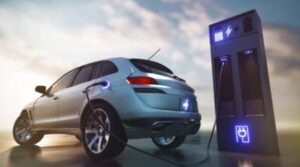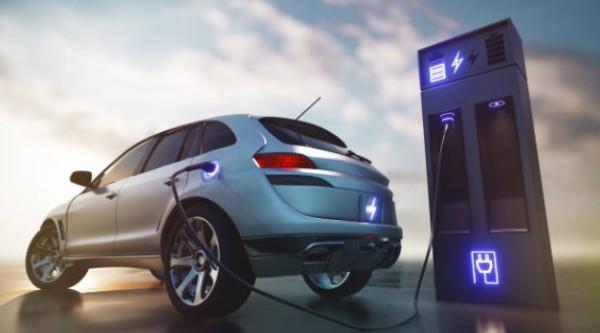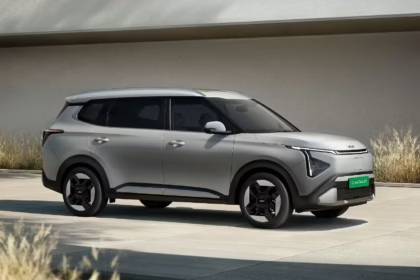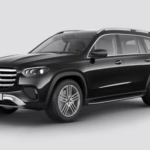This is already the era of electric vehicles. In such a situation, it has become very important to know about the battery of an electric vehicle. If you are planning to buy electric cars or simply curious about it, then this article is for you.
- What is kWh?
- Understanding EV Battery Specifications
- EV Battery Prices
- 1kWh to 2kWh Batteries
- 3kWh to 5kWh Batteries
- 6kWh to 8kWh Batteries
- 9kWh to 10kWh Batteries
- Factors Affecting Price
- Choosing the Right EV Battery
- Popular EV Battery Brands
- Panasonic
- LG Chem
- CATL (Contemporary Amperex Technology Co. Limited)
- Samsung SDI
- BYD (Build Your Dreams)
- Future Trends in EV Batteries
- Conclusion
- FAQ’s
The battery of an electric vehicle is calculated in kilowatt-hours (kWh). This determines the range of your vehicle on a single charge. The bigger the ev battery, the more electricity it will hold and thus the more distance your car will be able to cover.
In this article, we will inform you about ev battery price in 2024 with a capacity of 1 kWh to 10 kWh. You will know what their capability is, how it influences the range of your car, and what the price can be. We will also let you know which battery type you should use depending on your requirements.
For this, we will also consider your daily travel distance and your budget for electricity and charging. If you are planning to purchase an electric vehicle or you just need some information on it, then this article is for you.
Overview of EV Batteries
The battery is the most important part of the electric car. This battery provides the required energy to operate the vehicle. Just as petrol or diesel vehicles have petrol or diesel, electric vehicles have their energy source in batteries.
As you have observed, the majority of electric vehicles use lithium-ion batteries. They are also lighter, much more durable, and hold more electricity than traditional batteries. These batteries exist in various sizes and capacities, which are expressed in kilowatt-hours (kWh).
In other words, the battery of electric vehicles is like the heart – the core of the car keeping it alive and determining its range.

What is kWh?
Kilowatt-hour (kWh) is a measure of electrical energy that defines the amount of energy a certain electrical device consumes, for instance, an Electric Vehicle (EV) during a specific period. In more basic terms, the higher the kWh rating of a battery, the more reserves of energy it carries and the longer it sustains an electric automobile.
Understanding EV Battery Specifications
1. Capacity (kWh)
The capacity of the ev battery specifies how much electrical charge it is capable of holding. This means that when the ev battery power is high the car can cover more distance when the ev battery power is full.
- 1kWh to 2kWh: Great for small and lightweight cars, e-bikes, and e-scooters. It can travel a distance of between 10 to 20 miles on a single charge.
- 3kWh to 5kWh: Ideal for small electric cars. It can provide a range of approximately 48 to 80 kilometres.
- 6kWh to 8kWh: Mid-range electric cars fall under this category. It can run between 96 to 128 kilometres when fully charged.
- 9kWh to 10kWh: Most suitable for use in big electric cars. It can offer a variety of 144 to 160 kilometres.
2. Voltage
Voltage reveals how often electricity is delivered to the motor by the battery. In this instance, if the voltage is high then the speed of the vehicle will be high.
- 48V to 72V: This voltage makes it suitable for small and medium vehicles. It makes the vehicle run more efficiently and also uses less electricity.
- 96V and above: Big cars need more power and hence they have batteries with a voltage rating of 96V and above, this means that a large car will run faster and cover a bigger distance.
3. Weight and Size
The ev battery weight and size are also crucial in running and the look of the vehicle. Small batteries will do well for small cars, and large cars can also accommodate large batteries.
- Weight: Small batteries are typically a few kilograms and large batteries can be up to a few hundred kilograms.
- Size: The size of the ev battery also influences the type of car that is produced and the size of the car. Fewer batteries enable the car to have less drag and there is more room they get inside.
4. Charging Time
Another consideration is the time taken to charge an electric vehicle. This is determined by the size of the ev battery and the kind of charging system, either AC or DC and the charging station.
- Slow Charging: You can even slowly juice your car up from any normal 240 V point at home. It can take anything from 4 to 12 hours depending on the capacity of the ev battery of your vehicle.
- Fast Charging: This employs a particular type of charging point. With this, the vehicle can be charged to 80% for only 30 minutes of charging time.
EV Battery Prices
The ev battery price per kwh are also highly dependent on the capacity of the battery, the make or the brand, or even the generation of the battery. Below is an overview of the price range for batteries from 1kWh to 10kWh:
1kWh to 2kWh Batteries
These batteries are used in electric scooters, bikes, and small automobiles, among other devices. Their small size and comparatively small carrying capacity make them cheaper in most cases.
- Price Range: $100 to $400
- Best For: Electric scooters, bikes, and small utility vehicles.
3kWh to 5kWh Batteries
Mid-range batteries are suitable for small electric cars and larger scooters. They provide a good balance of range and cost.
- Price Range: $500 to $1,500
- Best For: Small electric cars, urban EVs, and heavy-duty scooters.
6kWh to 8kWh Batteries
Batteries in this range are common in compact to mid-size electric cars. They offer a decent range without breaking the bank.
- Price Range: $2,000 to $4,000
- Best For: Compact and mid-size electric cars.
9kWh to 10kWh Batteries
These higher-capacity batteries are designed for larger vehicles or those needing extended range. They are more expensive but essential for those requiring longer travel distances.
- Price Range: $5,000 to $7,000
- Best For Mid-size to large electric cars, SUVs, and extended-range vehicles.
Factors Affecting Price
- Brand: Premium brands may charge more for their advanced technology and reliability.
- Technology: Newer technologies like solid-state batteries or higher energy density cells may come at a premium.
- Demand: Market demand and supply chain issues can also influence ev battery price in india.
Choosing the Right EV Battery
When selecting an EV battery, consider the following factors:
Vehicle Type
This is more so since the sort of ev battery you need is usually specific by the kind of vehicle you possess. Since scooters and bikes are light vehicles, they will have to be fitted with a lower kWh as compared to cars or SUVs to be able to achieve the kind of output the buyer desires.
Range Requirements
Just consider this and your requirement of driving a car for half or a quarter of the day. If over ninety per cent of the travel is likely to be within a short range then a low-capacity ev battery will suffice. However, if you frequently travel long distances and your battery’s electrical capacity is measured in Ah,” a battery with a higher kWh capacity is preferable.
Budget
In addition, as highlighted before high-capacity ev battery has a longer range as well as better efficiency but, they are also expensive. Ensure that you make supplements and acquisitions to address your requirements as a company; you should make sure they fall with the financial capital you have.
Charging Infrastructure
Explain more about the current status of the charging points in the region you are focusing on. If there is a possibility of finding fast ev battery charger then you may not even need a large ev battery as you will only need to charge the pack in the shortest time possible while on the move.
Environmental Considerations
Sustainable would be the idea of purchasing batteries that have a low impact on the environment and those that are easily recyclable. Before deciding on the policies, I will have to conduct some research on the current environmental policies of the ev battery manufacturers.
Popular EV Battery Brands
Here’s a look at some of the leading EV battery brands:
Panasonic
Panasonic is among the first manufacturers in the EV battery market and has contracts with key players in the EV Battery manufacturing industry, including Tesla. Manufacturers describe them as having a high energy density and long-lasting performance.
LG Chem
Another is LG Chem which supplies batteries to several car makers across the world. It is widely acknowledged that they are professional in terms of technology and performance.
CATL (Contemporary Amperex Technology Co. Limited)
CATL, a Chinese company, is among the best suppliers because it offers affordable solutions and has a high production capacity. Many Chinese and international electric vehicle brands have adopted them.
Samsung SDI
Samsung SDI supplies batteries to its clients with a specific emphasis on safety and superior performance. They are utilized by numerous automotive companies and are reputed for being advanced.
BYD (Build Your Dreams)
Another is that BYD, a Chinese firm, is both an EV Battery maker and a battery supplier. These are well known for their durable, multi-faceted systems that drive their products and other automobiles.
Future Trends in EV Batteries
The future of EV batteries seems bright with the following trends on the horizon:
Solid-State Batteries
As it has already become clear, new generation Li batteries bring such advantages as the higher energy density, the shorter time for the charge, and safety. They can indeed significantly extend EV ranges, decrease battery pack weight, etc.
Improved Energy Density
Present-day research work is being focused on increasing the amount of energy density in lithium-ion batteries to have smaller and lighter batteries with the same or better capacity.
Recycling and Sustainability
The seemingly growing market of electric cars seems to be placing strong pressure on the batteries to be environmentally friendly. Due to advancements in technology, there are now improved methods of reusing the materials that are recovered from old batteries.
Wireless Charging
Wireless charging is not properly established but can be implemented it to get EVs charged without wires.
Conclusion
One needs to have information on the battery capacity and cost of the EV Battery at the time of purchase of the vehicle or when considering replacing the battery.
Starting with batteries that are small enough for scooters with only 1kWh, all the way up to batteries with 10kWh for cars, each has its benefits and costs. Thus, identifying which factors, such as range requirements, pricing limitations, or environmental impacts, you should choose the best battery.
To discover how EV batteries drive some of the premier electric trucks in India, visit our comprehensive article about Top Electric Truck Manufacturers in India.
It is important to understand how a battery management system (BMS) works to increase the performance of an EV battery.” You can read more about this in this article on BMS technology.
FAQ’s
What does kWh mean?
kWH, this is an abbreviation of kilowatt hour which defines how much electricity the battery can hold or store. This means that the battery will be capable of holding more power if the kWh is more, and therefore, the range of the car will increase.
What is the cost of a 1kWh to 2kWh battery?
This type of battery is used in scooters and small vehicles like forklifts. It costs like ₹ 10000 to ₹ 40000 Its cost is low as compared to other vehicles coming under the compact car segment.
How far can a car go with a 5kWh battery?
When fully charged a 5kWh battery will enable your car to cover 48 to 80 kilometers., Also, it is well suited for small electric cars.
What is the importance of voltage?
Voltage determines the rate at which the electricity is going to reach the motor of the car from the battery. Finally, the paper has determined that an increase in voltage will result in an increase in the speed at which the car operates.
Is a battery with more kWh always good?
A battery with a higher capacity in KWH can provide the car with power for a longer distance, but it will be expensive and the weight of a vehicle will also be affected. So it depends on the type of requirements you want to meet, decide on a battery to choose.





